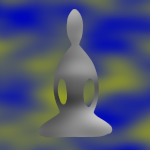Dear Friends,
Continuing with Sally Armstrong’s talk, “Facets of Equanimity,” looking at equanimity as an expression of wisdom.
One of the lists Sally includes in this section on equanimity and wisdom is the five remembrances. This is the version she shared:
I am of the nature to age, I have not gone beyond aging.
~ based on AN 5.57
I am of the nature to sicken, I have not gone beyond sickness.
I am of the nature to die, I have not gone beyond dying.
All that is mine, beloved and pleasing, will become otherwise, will become separated from me.
I am the owner of my actions (kamma), heir to my actions … Whatever actions I shall do, for good or for ill, of that I will be the heir.
As Sally mentions, “There’s a real power to this kind of reflection. That’s why it’s very traditional in Buddhist practice: there’s actually a lightness or freedom that comes – because we’re not resisting, even unconsciously, these deep and profound truths.”
Later, she adds, “When old age, illness, death come – it doesn’t mean there won’t be suffering, or that we won’t have pain or angst about that, but … we won’t have the delusion that something’s wrong here – this shouldn’t be happening. It’s the nature of this body.”
Caroline Jones has given talks on this reflection. She has said that like the metta phrases, it’s sometimes useful to find ways to make these reflections your own. She has shared her phrases, which I find quite beautiful:
Breathing gently, I lovingly remember, this body is aging.
~ Caroline Jones, The five daily recollections
Breathing gently, I lovingly remember, this body is vulnerable to illness.
Breathing gently, I lovingly remember, this body will die.
Breathing gently, I lovingly remember, that loss is part of life.
Breathing gently, I lovingly remember, to meet this moment with wisdom.
Reflection: In a talk by Caroline, she suggests this question. “How are aging, sickness, and death showing up in my life at present?” If that seems a fruitful reflection for you, I invite you to drop that kind of question into your practice.
If you’re interested in exploring this topic some more, both Sally and Caroline made a reference to a book by Larry Rosenberg, Living in the Light of Death: On the Art of Being Truly Alive.
Feel free to share your reflections or comments below, or by email.
With warm wishes,
Andrea

Rosemerry Wahtola Trommer’s poem “Unresolved” seems to me to echo the thoughts on equanimity that You have been sharing Andrea, but never more so than today, so I thought I’d share it here:
Unresolved
~Rosemerry Wahtola Trommer~
The hero in me
wants only a happy ending,
but tonight at the concert
every song I loved best
ended in a minor key
that lingered in the air
like a half formed rainbow,
like the scent of soil
after a punishing rain.
How do I teach that hero
to love the dissonance,
to settle into the discord
to shed her raincoat
and stand in the mess
and say ahhhhh?
So working towards the equanimity it would take to open to discord and “stand in the mess / and say ahhhhh.”
With metta,
Susan
Thank you Susan! Rosemerry’s poems have been a wonderful addition to my practice reflections.